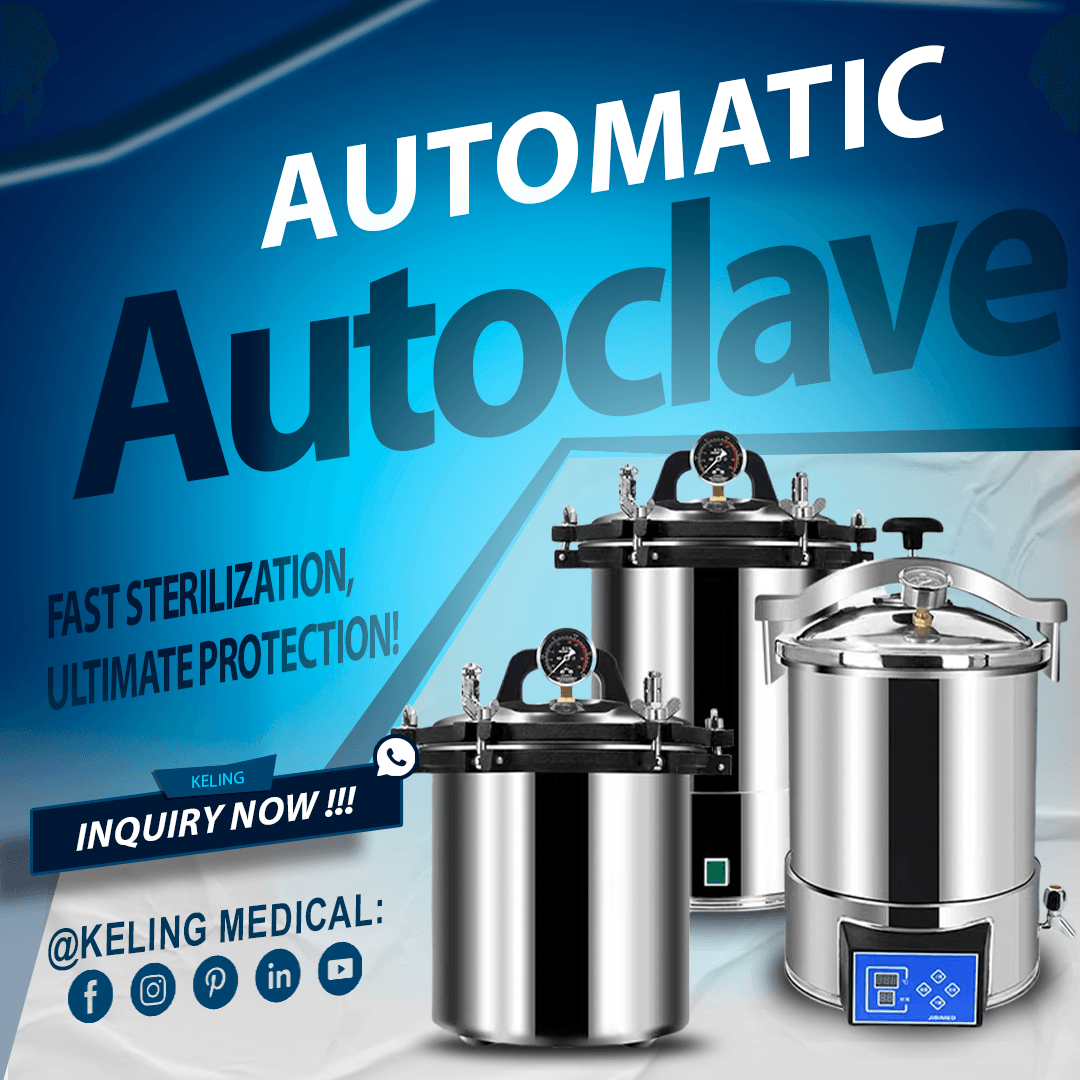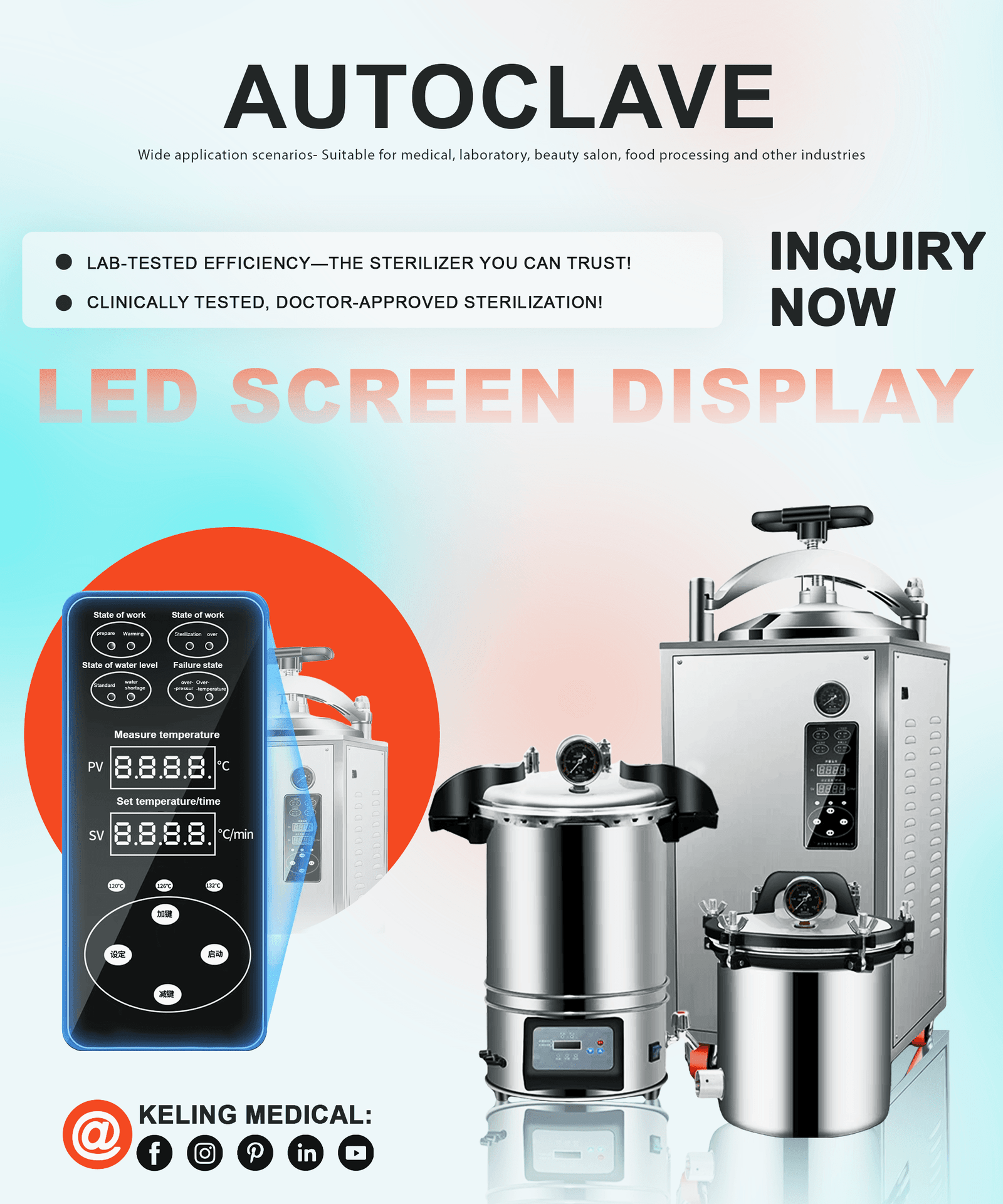
Professionals involved in the medical equipment supply chain can use this detailed guide to both deepen their knowledge of autoclave service and grow their service portfolios. The content reviews why regular maintenance is essential, examines the full range of service activities available, and demonstrates how reliable support creates strategic benefits. After reading this article you will understand how to present autoclave service as crucial client value that builds trust and propels business growth in competitive markets.
Autoclave service plays a vital role in maintaining sterilization systems.
The extreme heat and pressure conditions required for sterilization lead to component strain over time because autoclaves operate under these harsh conditions. Equipment failures like leaks or inaccurate readings can damage autoclave sterilization processes when maintenance is neglected and create serious health risks along with regulatory breaches. Autoclave service providers help their clients maintain optimal equipment performance which reduces operational interruptions and protects end-users through enhanced safety measures.
The expansion of sterilization equipment usage throughout multiple industries creates a parallel increase in demand for dependable maintenance services and support solutions. Medical equipment dealers and distributors can fulfill rising demand by delivering extensive autoclave service packages which encompass routine inspections as well as repair and technical support services. Suppliers become full-service providers in the sterilization industry while they meet client requirements.
Suppliers who provide superior maintenance and support for autoclaves gain multiple benefits when serving the healthcare sector and related industries.
Frequent servicing of equipment eliminates surprise malfunctions and maintains steady sterilization operation performance.
Equipment maintenance lowers the risk of improper sterilization which protects patients as well as medical staff.
Supporting clients with regulatory compliance enables them to achieve health and safety standards to prevent both penalties and operational disruptions.
A dependable service approach enables businesses to maintain long-term customer relationships which leads to repeat business and client referrals.
A comprehensive inspection of autoclave components establishes the groundwork for effective service by pinpointing wear indications and damage. The chamber together with door seals and safety mechanisms comprise crucial elements for ensuring both airtight containment and secure operation of autoclaves. Scheduled inspection services provided by suppliers enable clients to detect problems early which helps maintain continuous operation.
Timely identification of cracked seals or sensor malfunctions helps prevent expensive repairs and prevents total equipment malfunction. Service providers have a responsibility to inform clients about how proactive inspections can prevent downtime while ensuring sterilization processes remain effective.
Heavily used systems typically require either quarterly or biannual inspections while the inspection schedule varies based on usage intensity. Providers adjust inspection schedules to fit client requirements creating service plans that deliver top-quality maintenance.
Autoclave service requires cleaning to eliminate mineral deposits, debris, and residues that collect over time within the chamber, reservoir, and drainage systems. Buildup can disrupt performance functioning while encouraging bacterial development when maintenance is neglected. Service providers must select appropriate cleaning agents and methods to achieve complete decontamination while safeguarding component integrity.
Regular cleaning of the chamber and water reservoir prevents the buildup of scale from hard water and other fluids. Operating with distilled water reduces buildup while service teams provide clients with cleaning kits and solutions for hygiene maintenance.
Operational efficiency of the drainage system requires the removal of blockages to ensure the proper disposal of used fluids. Service providers implement drainage cleaning in routine maintenance packages which assists clients in avoiding operational disruptions from clogs.
The performance of autoclave systems depends on replacing worn gaskets, seals, and filters that experience deterioration through regular use. During maintenance visits service providers need to evaluate component conditions and suggest necessary replacements before any leaks or inefficiencies occur.
Door gaskets and opening seals degrade from heat and pressure while filters become clogged as time goes by. Suppliers keep different replacement parts in stock and provide installation services which guarantee smooth integration.
Service teams work with clients to create replacement schedules which use both usage patterns and manufacturer guidelines to update consumable parts before failure occurs. Proactive measures decrease operational risks while extending the lifespan of equipment.
The effective sterilization of autoclaves depends on accurate temperature and pressure measurements which necessitates the regular calibration of their sensors and control systems. Accurate sensor readings prevent incomplete sterilization cycles and safety hazards which makes regular calibration crucial to maintain compliance and system performance.
Calibration requires testing sensors against standard values and making necessary adjustments through specialized tools. Clients achieve accurate and reliable results through standalone services from service providers who perform calibrations or by adding calibration to comprehensive maintenance service packages.
Equipment that experiences high usage needs to undergo calibration at least once every year or on a more frequent schedule. By offering calibration certificates that demonstrate adherence to industry standards suppliers add value to their client relationships.
Autoclaves require regular maintenance but sometimes fail unexpectedly because of component breakdowns or operational stress. Autoclave support relies heavily on repair services which focus on fixing heating element malfunctions, pressure leaks and control system errors.
Service providers perform on-site repairs to quickly resolve minor issues thereby reducing downtime but send complex problems to specialized off-site facilities for servicing. To maintain efficient client operations suppliers need to deliver rapid service responses.
Suppliers who provide round-the-clock emergency repair services stand out in their market by giving clients reassurance during urgent situations. Service teams must maintain readiness to handle urgent demands quickly.
Autoclave operation demands high safety and effectiveness standards but many users operate without sufficient training. Autoclave service providers offer training sessions that teach clients proper loading techniques and cycle settings along with basic troubleshooting methods.
Operators who receive proper training tend to use equipment correctly which minimizes equipment damage and incomplete sterilization incidents. Training enables clients to carry out basic maintenance tasks which boosts their system management confidence.
Service providers design training programs that meet individual client requirements through instruction about safety protocols and emergency response procedures. Personalized service delivery enhances client relationships while boosting service value.
Autoclaves in medical settings require strict adherence to health and safety rules which demand comprehensive maintenance and service activity records. Service logs and calibration records together with compliance reports from suppliers help clients show standards adherence.
Precise maintenance records play a key role during audits and inspections by demonstrating adherence to equipment maintenance guidelines. Service providers should include digital documentation options or physical copies within their service packages.
Suppliers serve as guides for clients about local and international regulations which helps ensure that service practices remain compliant with necessary requirements. Suppliers who offer regulatory guidance become trusted advisors within the sterilization industry.
Autoclave service enables dealers and distributors to meet client needs for uninterrupted equipment support between maintenance tasks and urgent repairs. Through responsive service delivery companies foster strong partnership bonds while boosting their clients’ satisfaction levels.
Suppliers gain extra revenue opportunities when they offer service packages together with equipment sales. Business operators find service offerings to be a profitable growth avenue because many clients choose bundled maintenance solutions.
Autoclave service of superior quality helps clients achieve regulatory compliance for their equipment and minimizes their exposure to compliance violations. Suppliers become essential partners to clients by assisting them in upholding safety standards and compliance requirements.
Firms that deliver excellent autoclave service over time develop a reputation for reliability and industry knowledge. When clients receive satisfactory service they tend to come back for additional needs and recommend the supplier to others which leads to extended success.
The range of different autoclave models in use by clients results in diverse service needs which makes maintenance work more complicated. By training service teams across various systems and keeping extensive technical reference materials suppliers can address this issue.
Lack of understanding about maintenance importance among clients results in neglected equipment. To demonstrate the advantages of proactive care suppliers should deliver client education through workshops, informational materials, and service reminders.
Customers often consider service expenses as unnecessary and choose to receive only essential support. The longevity of preventive maintenance needs to be shown to suppliers as a cost-effective strategy because it minimizes repair costs and operational interruptions.
The delivery of on-site service faces difficulties because geographic distances create barriers and scheduling conflicts arise. To overcome logistical challenges suppliers can develop regional service teams or provide remote diagnostic tools for efficient client support.
Medical equipment dealers, distributors, and procurement specialists must provide autoclave service to support vital sterilization processes across healthcare and similar industries. Through comprehensive maintenance and support systems clients’ equipment achieves reliable operation while maintaining safety standards and regulatory compliance. Exceptional autoclave service leads to long-term client relationships and growth opportunities in a competitive market beyond direct transactions.
Our team stands ready to assist you with exploring autoclave service solutions or understanding how we can support your sterilization equipment requirements. Reach out to us via [email](mailto: You can send us an email at inquiry@shkeling.com to learn more about our services or connect directly through WhatsApp at https://wa.me/8618221822482 and visit our website https://autoclaveequipment.com/ for comprehensive details and personalized assistance. Our commitment involves creating custom solutions and providing professional support to fulfill your particular needs.
This service maintains consistent operation while preventing failures and ensuring safety by detecting and resolving wear and potential problems prior to affecting sterilization efficiency.
For optimal operation and compliance most systems require inspections every quarter or every six months regardless of usage frequency.
Suppliers provide operator training services to improve user skills which includes guidance on correct operation procedures along with safety measures and elementary troubleshooting techniques.
Maintenance services typically address issues like leaks and worn parts while also correcting control system malfunctions through both on-site and off-site assistance.
Through maintenance documentation and calibration record provision service providers enable clients to show compliance with health and safety standards in audits.

Introduction Autoclave machines used in hospitals are one of the most important investments in healthcare infrastructure, serving as the first line of defense against healthcare-associated infections. Sophisticated sterilization equipment is

The autoclaving process serves as an essential sterilization practice utilized across medical, laboratory, and research facilities to protect glassware and instruments through effective sterilization. High-pressure steam eliminates pathogens during this

The autoclaving process serves as an essential sterilization practice utilized across medical, laboratory, and research facilities to protect glassware and instruments through effective sterilization. High-pressure steam eliminates pathogens during this

The autoclaving process serves as an essential sterilization practice utilized across medical, laboratory, and research facilities to protect glassware and instruments through effective sterilization. High-pressure steam eliminates pathogens during this

The autoclaving process serves as an essential sterilization practice utilized across medical, laboratory, and research facilities to protect glassware and instruments through effective sterilization. High-pressure steam eliminates pathogens during this
The autoclaving process serves as an essential sterilization practice utilized across medical, laboratory, and research facilities to protect glassware and instruments through effective sterilization. High-pressure steam eliminates pathogens during this